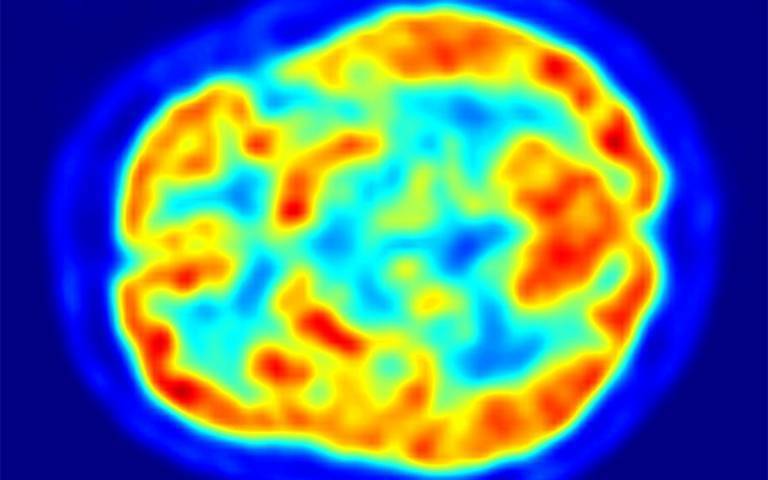World’s longest running birth cohort to shed light on ageing brain
15 November 2019
Neurologists and epidemiologists at UCL hope to gain fresh insights into brain ageing and dementia, as part of a new Alzheimer’s Association-funded study, assessing the records of people whose health and health-related behaviours has been uniquely documented since birth.

A $7 million grant from the Alzheimer’s Association in the US will allow UCL researchers to more accurately detect the influence of genetics, health and lifestyle on dementia risk across the life course in this unique population.
“People involved in this study have been providing their health data to researchers for their whole lives, so as they are now in their 70s we have a unique opportunity to better understand the ageing brain,” said the study’s principal investigator, Professor Jonathan Schott (UCL Queen Square Institute of Neurology).
“We are grateful to the Alzheimer’s Association’s commitment to funding the detailed assessments of even more individuals from this historic cohort. The funding is enabling us to advance our understanding of how risk factors throughout life can affect your eventual risk of dementia, to develop better preventative health strategies, identify people at risk of dementia, and improve clinical trials,” he said.
The Medical Research Council National Survey of Health and Development (NSHD), otherwise referred to as the “British 1946 birth cohort study” is a representative sample of 5,362 people who were all born in one week in March 1946. Now the longest continually running birth cohort in the world, it is housed within the MRC Unit for Lifelong Health and Ageing at UCL.
The study participants have been assessed 25 times throughout their lives, allowing researchers to collect important health information.
“This is the only study of its kind in the world where we have a lifetime of health information recorded from people who are now at an age where dementia is a common health issue,” said Dr Maria C. Carrillo, chief science officer, Alzheimer’s Association.
“Through the additional data and analyses enabled by this grant from the Alzheimer's Association, we hope to learn more about brain ageing, including the opportunity to pinpoint dementia risk factors that could potentially be modifiable," she said.
In 2016, a sub-study of 502 individuals from the cohort – known as Insight 46 – was started specifically to address brain ageing and dementia, funded by Alzheimer’s Research UK, Iceland Foods Charitable Foundation, the Medical Research Council (MRC) Dementias Platform UK and the Wolfson Foundation. Researchers at UCL will now be recruiting 500 further members from the original cohort into a study of how their brains are changing, which will be exclusively funded by the Alzheimer’s Association.
The five-year study will include cognitive and neurological tests, brain scans and other health assessments of the 500 new participants. The grant also brings back 250 individuals from the Insight 46 study, who will receive the same assessments, as well as a brain scan that identifies a key Alzheimer’s protein called tau.
A recent finding from the Insight 46 study, published last week in JAMA Neurology and led by Professor Schott, found that cardiovascular health as early in life as age 36 can predict brain health at age 70.*
The Alzheimer’s Association has pledged up to an additional $3.1 million based on achievement of key milestones, potentially bringing the total grant funding to more than $10 million. The scientific community will be able to analyse the data collected in this study through a dedicated publicly available database, and apply for access to the data for their own analyses, including access through Global Alzheimer’s Association Interactive Network (GAAIN).
Currently, the Alzheimer’s Association is investing over $167 million in more than 500 active best-of-field projects in 27 countries.
Links
Image
PET scan of human brain (not from this study). Credit: Jens Maus, Source: Wikimedia Commons
 Close
Close

